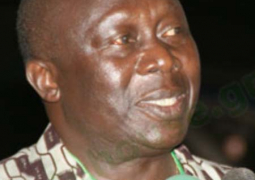Prepared by the International Human Rights Development Agency (IHRDA), the consultancy, which was designed to identify capacity gaps of legal service providers, has come up with relevant analysis of issues as well as a number of recommendations.
Speaking at the opening of the two-day forum which opened yesterday, Fafa E. Mbai, chairman of the National Agency for Legal Aid, said the existence of the rule of law, which is one of the fundamental pillars of democracy, demands an efficient judicial system and easy access to justice.
According to him, the right to life is as much as the right to have access to the law, and it is in this regard that Legal Aid is an important component of the criminal justice system in The Gambia.
‘It is a requirement under section 24 of the Constitution of The Gambia 1997 that a person charged with an offence which carries a punishment of life imprisonment or death shall be entitled to legal aid at the expense of the state,’ he stated.
Noting that the right to legal aid in such cases is a fundamental right, Fafa Mbai stated that it is also related to other fundamental rights, such as the right to be presumed innocent until proven guilty and the right to a fair and impartial trial.
He added that it was in furtherance of Section 24 of the Constitution that the Legal Aid Act 2008 was enacted.
The Act, he went on, established the National Agency for Legal Aid which is responsible for the administration of the grant of Legal Aid in certain proceedings and for matters connected therewith.
Fanta Bai Secka, vice chairperson of the National Agency for Legal Aid, said only three years ago, perhaps less, the Gambia had a dream fulfilled and that dream was to be able to provide access to justice to the Gambian populace without regards to ethnicity, creed, political or even one’s means.
According to her, spearheaded by President Yahya Jammeh, the relevant government, non-governmental and international organisations quickly embraced the ideas and gave it the enthusiastic support needed for its earliest possible legislation and implementation.
‘Out of this effort was finally born the enabling statue by way of the Legal Aid Act passed by the National Assembly and accented to by President Jammeh in November 2008,’ she stated.
She noted that the existing legal aid providers have been found to be few in number, yet the constraints are numerous.
Fanta Bai Secka went further to inform participants that out of about nine declared service providers only three have been able to make some impact (FLAG, NALA, GBA) in various degrees, owing to factors related to capacity.
In spite of the apparent commitment and drive of only these few institutions, their achievements have been correspondingly hampered by some of the drawbacks, especially personnel, logistical and funding, she said.
She commended UNDP for their contribution and support towards the holding of the event.
Read Other Articles In Article (Archive)




